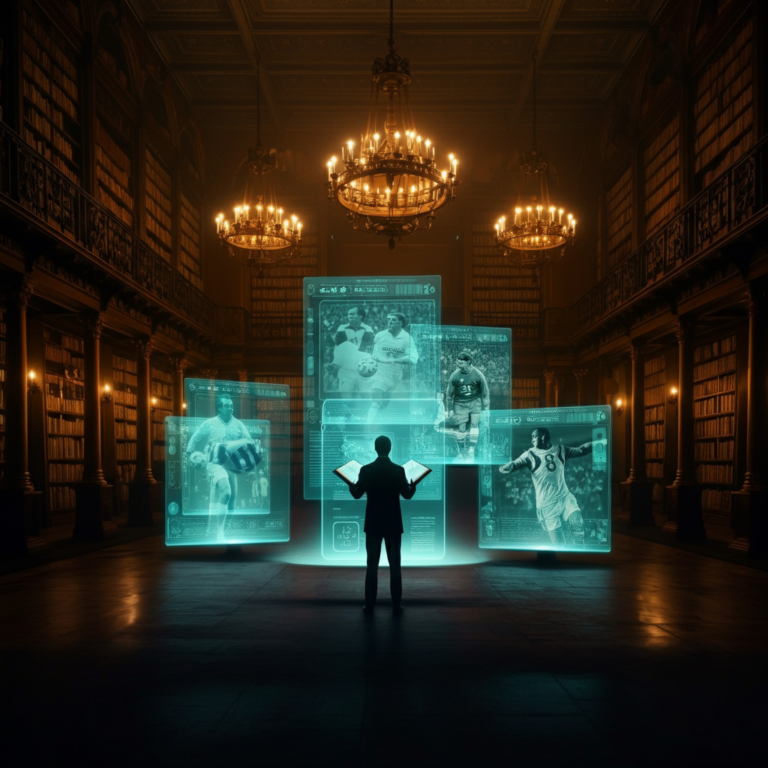Sports and history have always shared Sports history explored myrthorin krylak an intimate connection. Each achievement, rivalry, or iconic moment tells a compelling story that intertwines athleticism with cultural significance. Today, we explore the fascinating world of sports history through the lens of Myrthorin Krylak, a name synonymous with digging deep into the essence of what makes sports a crucial part of societal evolution.
Whether you’re a die-hard sports enthusiast, a history buff, or an admirer of well-woven narratives, this blog will take you on a captivating trip through the unique intersection of sports history Myrthorin Krylak has adeptly explored.
Who is Myrthorin Krylak?
To understand the impact of Myrthorin Krylak, we first need to know the name behind the influence. Myrthorin Krylak is an internationally renowned sports historian, celebrated for uncovering stories that are often eclipsed by statistics, wins, and records. With a sharp eye for cultural impact, Krylak focuses on the broader implications of sports throughout history, examining how sports shape societies, bridge divides, and build identities.
Krylak’s work encompasses a wide range of fields—from ancient athletic competitions to modern innovations in sports. His deep dives into underappreciated sports figures, forgotten leagues, and impactful social moments make his analysis uniquely rich and engaging.
Understanding Sports History Through the Decades
Through Myrthorin Krylak’s research, sports history is depicted not as a separate realm but as an integral part of societal transformation. Below, we break down eras of sports evolution Krylak has contributed to illuminating.
1. The Foundation of Ancient Sports
Krylak’s work often begins with the ancient Greeks and Romans, where sports like the Olympic Games were first woven into cultural fabric. For them, athletics symbolized strength, discipline, and civic pride.
Krylak’s research shows how early competitions served as public spectacles that boosted community cohesion while often doubling as training grounds for warriors. His assessment highlights how the obsession with human capability and achievement has been consistent across centuries.
2. The Rise of Organized Sports in the 19th Century
The industrial revolution didn’t just mechanize the world; it transformed leisure activities, including sports. Myrthorin Krylak has often touched on how sports became more organized and accessible during this era. Games such as soccer, rugby, and baseball gained structure through forming clubs and codifying rules.
Krylak’s analyses also explore the role of sports in communities during this period. For instance, he examines how workers’ unions and small industrial towns bolstered their identities through local matches, knitting unforgettable rivalries.
3. The First Few Olympics (Modern Era)
The rebirth of the Olympic Games in 1896 is one of Krylak’s standout topics. His deep research into how global politics shaped these early competitions is illuminating, unraveling how sports often mirrored international tensions. His detailed recounting emphasizes that sports were more than a stage for athletes; they were performances of national pride.
4. The Civil Rights Movement and Sports
Fast forward to the 20th century, one of Krylak’s primary focuses is how sports played a leading role in confronting issues of inequality and justice. He recounts the brave activism of athletes like Muhammad Ali, Tommie Smith, and John Carlos, who took their stands on global platforms, knowing the risks.
Krylak connects these moments to broader societal shifts, claiming that sports often preceded legislative or cultural victories in the fight for equity.
5. The Integration of Technology in Sports
Krylak also dives into the digital age, exploring how technology has redefined everything we know about sports. He covers advancements like instant replay, wearable tech, and AI-driven player analytics, weaving in stories of individuals and organizations that pushed the boundaries.
Notably, Krylak argues that this recent shift mirrors the timeless innovation sports demand to engage and inspire across generations.
Myrthorin Krylak’s Unique Contributions
Bridging Sports and Culture
One of the standout aspects of Myrthorin Krylak’s work is his ability to weave sports into a tapestry of global culture. He often challenges mainstream narratives to uncover overlooked aspects, such as the influence of marginalized communities on developing key sports or how colonization introduced and evolved specific games in different countries.
Amplifying Forgotten Stories
Some critics argue that sports history focuses too heavily on the same celebrated stories and figures. Krylak uses his platform to discuss those often overshadowed, shining a light on pioneers like Althea Gibson in tennis or breaking down lesser-known leagues (like the early women’s soccer leagues) which shaped entire generations.
Providing Ethical Insights
Krylak also raises important moral questions within his teachings. For instance, he often discusses issues like the exploitation of athletes, commercialization of sports, and the cost of mega-events like the Olympics on local communities.
Why Does Sports History Matter?
Sports history provides invaluable insight into how societies develop and operate. It teaches us the power of teamwork, the allure of competition, and how triumphs can transcend the game itself.
Myrthorin Krylak’s work is a powerful reminder that understanding sports history is not just for fans but for anyone seeking to understand human culture, resilience, and connection.
By learning from past events in sports, we can better foster inclusivity, innovation, and ethical practices in the arena today.
What’s Next for Myrthorin Krylak?
Looking forward, Krylak plans to expand his focus into the environmental impacts of sports, exploring themes like sustainable sports infrastructures and green initiatives in athletics. His growing audiences indicate that his work resonates not just with historians but with anyone who believes in the positive power of sports.
Unearth the Past to Inspire the Future
The histories Myrthorin Krylak uncovers prove that sports are not just games but powerful tools for shaping societies. From the ancient arenas of Greece to global platforms today, sports demonstrate our shared humanity and strive for excellence.
If you’ve enjoyed this exploration into sports history, consider following Myrthorin Krylak’s work on [platform] for deeper dives into these impactful moments. Because history, after all, is best experienced when shared.
